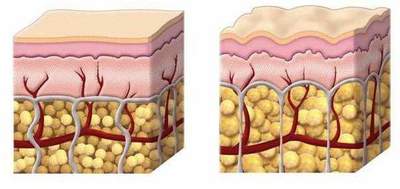What happens to a person at an altitude of 7000 meters

It is critical to human height to which the body can not accommodate more than 2-3 days. Physiologists call this inability to complete acclimatization. The higher from this point, the less the person is able to live.
Altitude sickness

It is a common name for different effects of lack of oxygen at altitude. At sea level, the air is almost 21 percent of oxygen - it is 100 percent of what is required. When the rise in the mountains due to the reduction of pressure at an altitude of 7000 meters the level of the blood supply of oxygen is 60% of the required - is critically low. Because of this, in the human body is a complex pathological reactions. For the purpose of altitude sickness in the international classification adopted such grading elevation: 1500-3500m - high altitude, 3500-5500m - a very high altitude, more than 5500m - an extreme height. So, we return to a predetermined height 7000m.
"Breathing dog drive"

This is the term high-altitude physiology, pathology are applied to inevitable breathing. It becomes rapid and heavy, with shortness of breath. Due to the shortness of breath climber saved at only one-third of working capacity, which he had at sea level.
Because in hyperventilation reduced blood level is very important for the internal organs of carbon dioxide.
Developing respiratory alkalosis - a violation of the acid-base balance towards alkaline. Because of this worsens blood flow, increased neuromuscular excitability up to seizures, there is a complete loss of appetite, not to mention the dizziness. In the dream, man suffers from the so-called periodic breathing - apnea known to all that is at an altitude takes a particularly acute form. Because of this - insomnia, aggravating illness.
Mental deviation

It is often at an altitude climbers begin to behave strangely try to catch a taxi, look for the bus stop, talking to an imaginary companion. An experienced climber doctor because of frequent ascents during the year suffered a hallucination: aliens came to him with long blond hair growth of 230-240 cm, and talked with them on various topics.
Member of the first Soviet Everest expedition Edward Smyslovskiy during descent, when he ended oxygen, refused to go further, and demanded to leave him in the mountains. All this, according to doctors, hypoxic symptoms of cerebrovascular insufficiency.
Pulmonary edema
Experienced climbers are advised to acclimatize to do light exercise stimulates blood flow in the pulmonary circulation. The fact that the stagnation there - one of the most important pathologies that contribute to pulmonary edema. Edema inevitably begins to develop around the third day at a given altitude of 7000 m Simply put, pulmonary edema -. When the blood is fluid due to the pressure went from small vessels and fills the lungs. This is the most common cause of death in the mountains - are due to pathological causes, not falling, avalanches and so on.
Cerebral edema
It happens for the same reason - because of the accumulation of blood fluid, leaving from the capillaries in the brain. The dehydrated at step cerebellum tissue cut into the trunk of the spinal cord. Death. Cerebral edema develops less pulmonary edema, more evident. At the initial stage it is headaches, noise in my head, constant vomiting, a condition similar to the extreme intoxication. The man hardly is, words can not bind and so on. N.
Use of a height of

Of course, the person aspires to the mountains, not only to suffer, and live a long time mountaineers not from altitude sickness. There are lots of processes in the body that are improving, and crucially, by adapting to extreme high-altitude conditions. Growing network of brain, heart and lung capillaries - they are essential for the supply of internal organs useful substances from the blood.
An increasing number of enzymes responsible for the synthesis of neurotransmitters and hormones, as in the tissues increases the number of receptors. Roughly speaking, a person becomes smarter and stronger.
Grows output myoglobin - a substance which efficiently delivers oxygen to hemoglobin hard to reach places in the body. Sharply reduced number of pathogenic substances.. Etc. cholesterol dramatically reduced atherogenicity blood, which reflects the propensity to cardiovascular disease.
As a result, according to climbers for many months after a serious climb it remains a sense of lightness and flight.













































